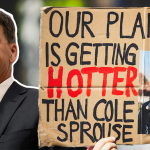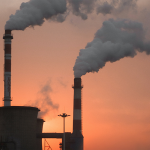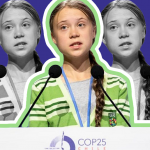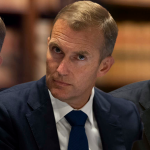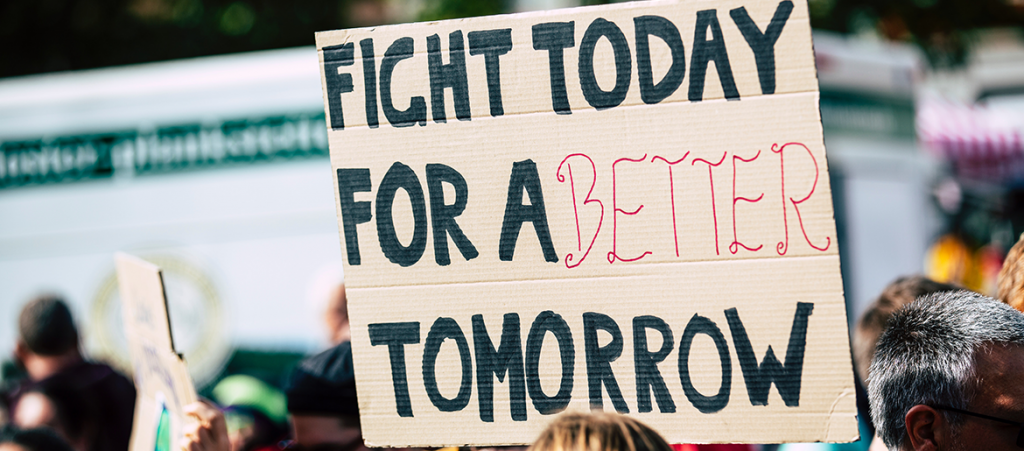
The Intergovernmental Panel on Climate Change has released its sixth assessment report on the climate crisis and it’s really, really bad. You know that. But as Greta Thunberg famously said on the report’s release, “It doesn’t tell us what to do. It is up to us to be brave and take decisions… [so] we can still avoid the worst consequences.” With that in mind, this piece won’t rehash the anxiety-inducing details of the 2021 IPCC report – instead, we’re focusing on what we can do about it.
TL;DR What Did The 2021 IPCC Report Say?
The main takeaway is this: We *will* reach the 1.5ºC increase in the global average temperature, and probably in the next 10 years. Much of the damage caused up to that point is irreversible. But we still have time and it is still possible to achieve the most important goal – making sure we don’t hit 2ºC warming. We need to ensure that 1.5ºC is *peak* warming.
It’s that final point we need to channel all our hope, optimism, anger and motivation towards. The 2021 IPCC report has shown that we can still act to stop the worst of the climate crisis – here’s what we need to make happen in Australia…
The only way to avoid dangerous climate change is to apply an emergency break to fossil fuel use now. Some will squeal about the cost. Let them. We live in a world where billionaires can afford to fund private space races. There is no lack of resources. https://t.co/2cvN1ZfUVw
— James Dyke (@JamesGDyke) August 10, 2021
How to Prevent 2ºC Global Warming
The short version of this answer is: we need to achieve net-zero emissions as soon as possible, and definitely by 2050. If we hit net-zero very quickly, there is even a small possibility that we may never reach 1.5ºC. According to the latest International Energy Agency report, this is how it can be achieved:
- Big Financial Investment in Renewables: Funding and investment into renewable energy and the technology needed to make it accessible for all must start now and continue for at least a decade.
Followed by: Divestment (meaning selling off investments and assets) and removal of funding incentives for fossil fuels. Investment in renewable energy achieves nothing if fossil fuels are also financially propped up. - No New Coal-Fired Power Plants: Everytime a coal-fired plant is decommissioned (gets too old to keep running and is closed) we must replace it with a clean, renewable energy source like wind or solar. That means no gas-powered plants, no matter how “clean” the Coalition says they are.
Followed by: Closing all existing fossil fuel plants by 2040. We just gotta leave all that oil, coal and gas where it is. - Stop All Sales of New Combustion Engine Cars: By 2035, any brand new passenger cars sold must be electric vehicles (EV) – of course, that means we need to also invest in the infrastructure to support EVs being on the roads (like charging stations).
Followed by: Removing all combustion engine passenger cars from the road, replacing them with EVs.
Will these things be hard to do? Definitely. Are they possible to do? Absolutely. The alternative is the death of the planet and a premature end for the human race. Pretty easy choice, tbh.
And in Australia there is still a pathway. We need to keep working for real climate action – mobilising, campaigning, disrupting, and building the movement. But there is one thing more powerful than anything else. Our votes.
— Nick McKim (@NickMcKim) August 9, 2021
What Can You Personally Do To Make It Happen?
Many Zee Feed readers have sent messages expressing how scared they are about the state of the planet. Taking action will help calm that fear a little… Keeping global warming to 1.5ºC or less will require the huge actions above, and you can personally help achieve them by:
- Writing to your State and Federal MPs Now
Feels like a cliché, but it’s the thing to do. Ask them and their party to make a net-zero by 2050 commitment, and to share how they plan to achieve that. Tell them that this is the sole issue you will be voting on in the next election. Tell them you do not want any new fossil fuel power plants to be built in your state. Check your Federal MP on They Vote For You to include specific actions they have taken or legislation they have blocked, so they know you’re really watching. Be polite, specific and passionate, and ask for a reply. - Making Climate Action Your #1 Election Issue & Voting On It
The next federal election for Australia is expected pretty soon – we think it’ll be May 2022. Make climate change your priority in the election – share this with every candidate running in your electorate, and cast your vote based on climate policy. The next election will be a pivotal moment in history on this very real, looming threat. - Joining Grassroots Efforts In Your Local Community
Organised community action is an incredibly powerful tool for bringing about tangible change. Find (or start!) grassroots campaigns in your area that are working in any of the three critical action areas: blocking fossil fuel development, encouraging investment and uptake of renewable energy, and accelerating the shift to electric vehicles. Join their protests, sign their petitions, donate your cash or your skills.
As for other individual actions to reduce your personal carbon footprint – yes, it’s always good to be thinking about ways you can limit your impact on the environment. But the cold hard truth is your personal lifestyle changes aren’t going to make a big enough difference fast enough to impact the bigger picture.



